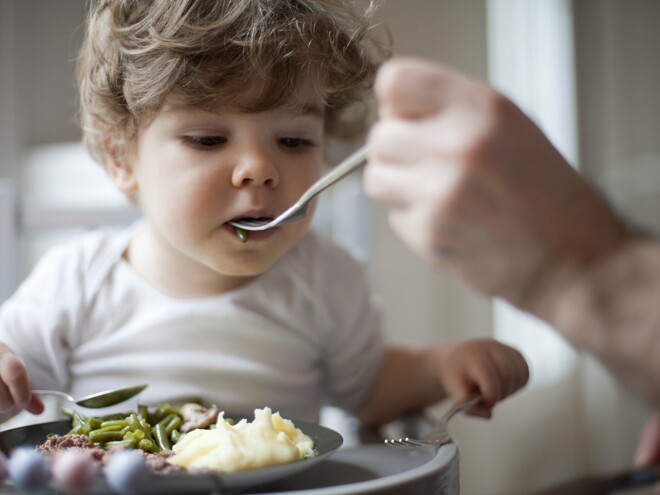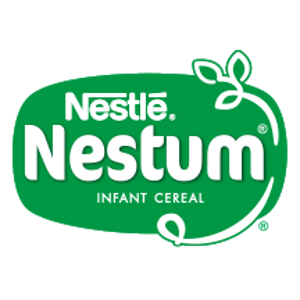
Toddler Meal Guide: Everything About His Nutrition
Your child needs the best nutrition during his first years to grow healthy. In this toddler meal guide we will tell you everything about what he needs, click to learn more.
As your toddler embarks on the exciting journey of discovering new tastes and textures, it's essential to provide him with balanced and wholesome meals that support their growth and overall well-being, and a toddler meal guide becomes essential to understand what your child needs.
In this thoughtful guide, we'll delve into a myriad of topics designed to make mealtime a joyous and nourishing experience for both you and your child.
From introducing a variety of nutrient-packed foods to understanding portion sizes tailored to their tiny tummies, we've got you covered.
In Baby & Me, we'll talk about that not only capture your toddler's imagination but also meet their nutritional requirements.
Toddler Meal Guide by Age
Whether you're navigating the challenges of introducing new foods or seeking inspiration to make mealtime a delightful experience. It’s important to understand each of the nutritional requirements of your toddler while he grows.
Meal Guide for The First Year
As your baby embarks on the incredible adventure of their first year, establishing healthy eating habits is a vital component of his overall development.
In the initial months, breast milk serves as the primary source of nutrition. For breastfeeding moms, maintaining a well-balanced diet is key. As your baby's digestive system develops, introducing single-ingredient purees, starting with iron-rich options like rice cereal, around six months can be a gentle initiation into the world of solids.
As your baby becomes more curious about 6 to 9 months old, gradually introduce a variety of single-ingredient purees and mashed foods. This stage is about exploring textures and flavors. Opt for soft fruits like berries, steamed vegetables, and well-cooked grains. Monitor for any signs of allergies and introduce one new food at a time.
By 9 to 12 months old, your little one is ready for more diverse textures and a broader range of nutrients. Introduce finger foods, allowing them to practice self-feeding. Include protein-rich sources like diced chicken or tofu, along with a colorful array of fruits and vegetables. Encourage the development of motor skills by offering appropriate utensils.
During the first year, pay attention to the balance of nutrients. Include a mix of carbohydrates, proteins, healthy fats, vitamins, and minerals. As your baby's diet diversifies, ensure they receive adequate iron, calcium, and vitamin D for optimal growth.
Meal Guide for Toddlers From 1 to 3 Years Old
As your little one blossoms into a spirited toddler, their nutritional needs evolve to support their growing body and adventurous spirit.
Embrace a mix of textures to enhance sensory experiences. Gradually introduce chopped, diced, or shredded versions of fruits, vegetables, and proteins. This helps refine their chewing and swallowing abilities while exposing them to a diverse range of flavors and textures.
Toddlers are known for their energy, and smart snacking plays a crucial role. Offer healthy snacks such as sliced fruits, yoghurt, cheese, or whole-grain crackers. Keep portions manageable and try to align snacks with their regular meal schedule.
Picky eating is a common phase during childhood. Be patient and continue offering a variety of foods. Sneak in nutrients creatively to make the experience more engaging.
Tailor these suggestions to your child's preferences. Enjoy these precious moments of discovery and growth as you nourish your little one during this dynamic phase of their development.

What Nutrients Should Be in a Good Toddler Meal?
Ensuring that your toddler receives a well-rounded and nutritious diet is crucial for their growth, development, and overall well-being. A good toddler meal should incorporate a variety of nutrients that serve as the building blocks for their rapidly developing bodies.
- Protein is vital for muscle and tissue development. Include sources such as lean meats, poultry, fish, eggs, dairy products, legumes, and tofu in your toddler's meals to meet their protein needs.
- Calcium is essential for bone and teeth development. Incorporate dairy products like milk, cheese, and yoghurt into their diet. If your child is lactose intolerant, consider calcium-fortified alternatives like fortified plant milk or tofu.
- Iron is crucial for cognitive development and preventing anemia. Include iron-rich foods such as lean meats, fortified cereals, beans, lentils, and green leafy vegetables in your toddler's meals. Combining iron-rich foods with vitamin C-rich options like citric fruits or broccoli enhances iron absorption.
- Healthy fats support brain development and energy. Include sources like avocados, nut butters, olive oil, and fatty fish (if age-appropriate) in their diet. Ensure a balance between saturated and unsaturated fats for optimal health.
- Fiber aids digestion and helps regulate bowel movements. Offer whole grains, fruits, vegetables, and legumes to ensure an adequate intake of dietary fiber in your toddler's diet.
- Provide a variety of fruits and vegetables to cover a spectrum of vitamins, including vitamin A, vitamin C, and vitamin K. These vitamins play crucial roles in immune function, skin health, and blood clotting.
- Omega-3 fatty acids support brain development. Include fatty fish, chia seeds, flaxseeds, and walnuts in your toddler's diet to provide a good source of these beneficial fats.
By incorporating a variety of nutrient-dense foods into your toddler's meals, you're laying the foundation for healthy eating habits that will benefit them throughout their childhood and beyond.
What are the Portions Of Meals For Toddlers?
Determining appropriate portion sizes for toddlers can be a delicate balance. As parents, it's essential to ensure that your little one receives enough nourishment while avoiding overfeeding.
Toddler appetites vary, so consider your child's age and size when determining portions. Younger toddlers may eat smaller quantities, while older toddlers might show increased interest in food. Pay attention to your child's hunger and fullness cues.
They have small stomachs, and their energy needs are spread throughout the day. Offer smaller, nutrient-dense meals with healthy snacks in between. This approach helps maintain a steady energy level and provides a variety of nutrients.
Aim for a balanced mix of macronutrients (carbohydrates, proteins, and fats) in each meal. Including a variety of foods ensures that your toddler receives a broad range of essential nutrients. Be mindful of the quality of the foods you offer. Limit sugary snacks and processed foods, focusing on whole, nutrient-dense options.
Every child is unique, and their nutritional needs can vary. Consult with your pediatrician to ensure that your toddler's portion sizes align with their growth and development.
From the crucial first year to the energetic toddler years, emphasizing nutrient-rich foods, age-appropriate portions, and fostering positive mealtime experiences are key to supporting your child's growth and development. Remember, each child is a unique explorer of tastes and textures, and the journey is as much about joy and discovery as it is about nutrition.

Gain a better understanding of your child's development with the help of our stages



































